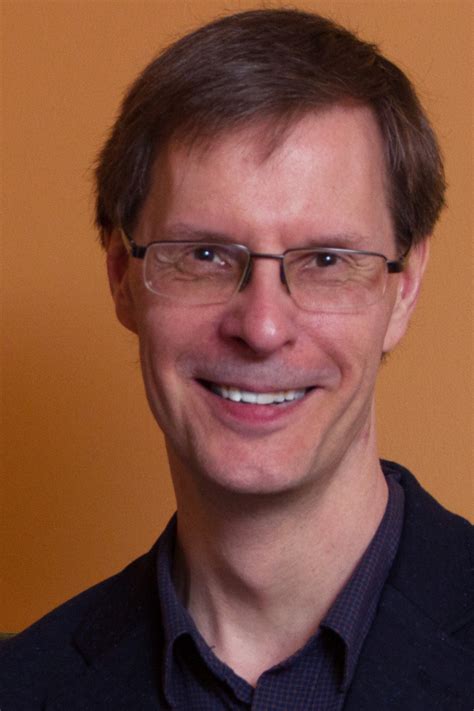A Quote by Samuel R. Delany
Science fiction doesn’t try to predict the future, but rather offers a significant distortion of the present…We sit around and look at what we see around us and we say how can the world be different
Related Quotes
To be a science fiction writer you must be interested in the future and you must feel that the future will be different and hopefully better than the present. Although I know that most - that many science fiction writings have been anti-utopias. And the reason for that is that it's much easier and more exciting to write about a really nasty future than a - placid, peaceful one.
How we view ourselves can often determine the perspective and degree in which we see others and the world around us. Each and every one of us has a view. Such a view, that it can shape the future of others and how they live, dream and look towards the future that we all hope is better and more fruitful than our past. This I believe is a common initiative.
Let’s think of reverence as awe, as presence in and openness to the world…Try walking around with a child who’s going, ‘Wow, wow! Look at that dirty dog! Look at that burned-down house! Look at that red sky!’ And the child points, and you look, and you see, and you start going, ‘Wow! Look at that huge crazy hedge! Look at that teeny little baby! Look at the scary dark cloud!’ I think this is how we are supposed to be in the world – present and in awe.
It is clear that while science provides insights into the complexity of the world around us, those insights...present a fractured mosaic rather than a seamless whole. There are profound limits to science that must be recognized if we are to minimize the destructive consequences of using the powers provided by scientific discovery.
I think that prog rock is the science fiction of music. Science fiction speculates on what the future might be and look like and how we'll get there, and yet there's always a central theme of humanity, or there should be. Progressive rock has the same concept of exploration into the parts of the music world that hasn't been explored.
We think the problem is out there, when the problem is really in here - who we are and how we experience the world around us. The acoustic ecologist listens, as the primary sense, to the world around us, and I believe that they have a significant contribution to make to all environmental groups who think that they're solving environmental problems, when we're actually all on a spiritual pilgrimage.
Until you have a child, it's very tempting to look at the state of the world and say, "To hell with it, in 50 years I won't be around anyway." But if you have a child you don't say that, because even if you're not around in 50 years, your children presumably will be, and maybe even their children. You think of yourself as responsible to future generations in a whole different way.
One of the things that I love to do is travel around the world and look at archaeological sites. Because archaeology gives us an opportunity to study past civilizations, and see where they succeeded and where they failed. Use science to, you know, work backwards and say, 'Well, really, what were they thinking?'
Rare is the book that can actually transform us into better, more fulfilled people. Having combed through the research and documented case studies all over the world, Kristof and WuDunn present the clearest view I have ever seen of the human soul. A Path Appears tells us whether we are intrinsically good, why specific ways we parent our newborns help predict their chances for success, and how we can live lives of greater significance. This book, full of rich and riveting true stories, reminds us that human greatness is all around us, and even within us, if we dare to look.

































